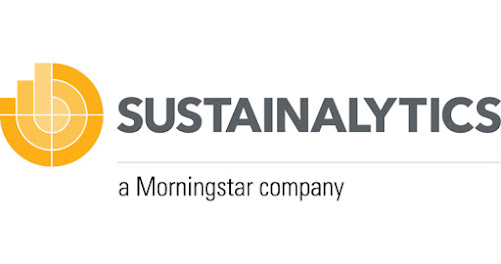A unit of Morningstar Inc (MORN.O) that rates companies on environmental, social and governance criteria will no longer sell a human rights research product to investors after an independent review found it "focuses disproportionately on the Israeli/Palestinian conflict" relative to other high-risk regions, executives said on Thursday.
In addition to eliminating the Human Rights Radar product, Morningstar's Sustainalytics unit will take other steps recommended by law firm White & Case LLP, such as making its research more transparent and adding an ombudsperson. In a note on Chicago-based Morningstar's website, CEO Kunal Kapoor said that the company previously was "overly dismissive" when Jewish groups and others raised concerns about bias in its research.
While removing Human Rights Radar as a source is important, the issues with Morningstar's Sustainalytics unit goes much deeper.
The
report from White & Case shows that the unit has a close relationship with the Who Profits NGO, which
lists only
Jewish-owned companies even though there are Israeli Arab-owned companies that would fit its own criteria of what to place on a blacklist. Which means that one of Morningstar's main sources for information is, by definition, antisemitic.
Several Sustainalytics employees provided information about the use of the NGO Who Profits as a source relied upon by the Controversies Research, GSS, GSE, and HRR teams in the context of research involving the Israeli/Palestinian conflict areas. Who Profits describes itself as “an independent research center dedicated to exposing the commercial involvement of Israeli and international corporations in the ongoing Israeli occupation of Palestinian and Syrian lands.”164 Sustainalytics employees expressed contrasting views on the use of Who Profits by the research teams. Some employees indicated that Who Profits was used primarily for background information, and was consistently balanced against other sources. Other Sustainalytics employees explained that research analysts often rely upon Who Profits for what they view as unique, bootson-the-ground research regarding corporate involvement in the region, in part because Who Profits is one of the few organizations that actually operates on the ground in the Israeli/Palestinian conflict areas. One Sustainalytics employee described the relationship with Who Profits as being somewhat distinct from other NGO sources, as Sustainalytics is familiar with Who Profits’ research approach, and thus analysts will sometimes contact Who Profits directly to ask clarifying questions or obtain additional information.
Communications between Sustainalytics employees and representatives of Who Profits suggest that the relationship between the entities is close, relative to Sustainalytics’ relationships with other organizations. For example, in at least two instances Who Profits raised complaints to Sustainalytics (and GES, prior to its 2019 acquisition by Sustainalytics) about certain business practices, specifically once when Sustainalytics sent a representative to an ESG conference in Israel, and, as noted above, once when Sustainalytics published a bespoke research report that cited Who Profits and ultimately concluded the issuers in question had not violated international norms. On both occasions, GES and Sustainalytics sought to meet with representatives of Who Profits and address their concerns. In neither case, however, did Sustainalytics alter its ratings based on Who Profits’ complaints.
This excerpt shows that Who Profits subscribes to BDS, and complained to their good friends at Morningstar's ESG unit because they violated BDS rules by attending a conference in Israel. It is hard to see how any source can be more biased against Israel than that. Yet Morningstar still has a close relationship with Who Profits and seeks out their "research."
This is the most egregious example of anti-Israel bias at Morningstar but not the only one. Some is far more subtle:
With respect to GSS and ratings involving alleged human rights violations in particular, Sustainalytics employees acknowledged the unique challenges that such research presents, and explained that, in order to meet those challenges, GSS analysts substantiate all allegations with multiple, credible sources. GSS researchers explained that in addition to NGO sources like Human Rights Watch and Amnesty International, the sources that are used most often are the United Nations, international governmental organizations like the European Union, The Washington Post, and The New York Times.
While those sources are considered reliable and objective in the international community, all of them have shown marked anti-Israel bias. The report mentions that the Jerusalem Post has been used as well, but that is hardly a counterbalance. Media sources should be checked to see if their assertions have been disproved by CAMERA or Honest Reporting, NGO sources should be checked to see if NGO Monitor had critiqued the source, and UN Watch should be consulted whenever the UN is used as a source.
Only after looking at both these sources and their critics could Morningstar make a reasonable decision.
While the report shows serious effort to be objective, there are many levels to anti-Israel activity, and there are very few people who are attuned to the nuances of how seemingly objective, respected sources can in fact have a serious pattern of one-sided criticisms of Israel based on their own biased sources. We cannot expect Morningstar to be expert in those biases, but if they want to be truly objective themselves, they need to seek out those who specialize in documenting the bias of their sources.
(h/t FDD)
|
 Buy the EoZ book, PROTOCOLS: Exposing Modern Antisemitism today at Amazon! Buy the EoZ book, PROTOCOLS: Exposing Modern Antisemitism today at Amazon!
Or order from your favorite bookseller, using ISBN 9798985708424.
Read all about it here!
|

|


 Elder of Ziyon
Elder of Ziyon


















.jpg)





